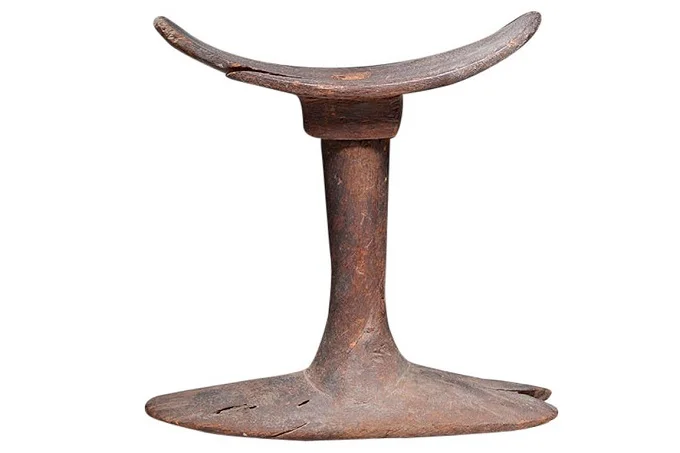History is full of interesting facts often lost behind global events and important personalities. However, they help better understand how our ancestors lived, what they thought, what worried them. We will tell you a few historical facts that are interesting to know.
History facts you should know
Pillows appeared in ancient Egypt

A few thousand years ago, when people built the first civilizations, they already had pillows. The ancient object for sleeping was not like the modern one and was a polished stone with a recess in the center. Something like an orthopedic pillow – only made of stone.
The Leaning Tower of Pisa was crooked from the start
Construction of the famous Leaning Tower of Pisa began in 1173, but, contrary to popular belief, it did not start to tilt after it was built. The wrong heel was laid at the beginning of construction, and to compensate for the slope, subsequent floors were built with higher corridor ceilings on the side into which the tower fell.
Arabic numerals are not Arabic at all
This is one example of a historical fallacy that most people believe in. Arabic numerals appeared in India no later than the 5th century. But, since these numbers came to Europe through the Arab countries, which were the most developed states in terms of science during the Middle Ages, they began to be called Arab.
Interestingly, initially, there was no zero in Arabic numerals – an empty space was left instead. Zero appeared around the 9th century.
Hitler may not have existed
When people talk about alternative history, they usually imagine how Adolf Hitler was killed in the First World War, where he fought as a corporal. But few people know that a priest saved him from drowning in January 1894 when little Hitler was 4 years old.
The First World War was a conflict of relatives
The Emperor of the Russian Empire Nicholas II and King George V of Great Britain were not only very similar to each other – they were maternal cousins. It is interesting that Wilhelm II, the emperor of the German Empire, was their cousin.
Since in Europe at that time, the royal courts were actively mixing with each other – all wars unleashed by countries seem to be just a fight between brothers over who will play the console. The only difference is that because of their ambitions, millions of people died.
“D-Day” is the name for a military operation
The Normandy Landing, also known as Operation Neptune in Europe and Operation Overlord, is more commonly referred to as D-Day in the United States. But what does this letter D mean? This is an abbreviation for the word “day”, which translates as “day”. In other words, the US military called Operation D-Day.
Kim Jong Il was a musician
The famous North Korean dictator Kim Jong Il is believed to have written many compositions, including even operas. Moreover, Kim Jong Il wrote six operas in just two years.
Napoleon may have fallen from the rabbits
To celebrate the signing of the Treaty of Tilsit in July 1807, the great commander Napoleon Bonaparte decided to arrange a rabbit hunt. He instructed the chief of staff, Alexandre Berthier, to organize the event, and he bought about 3 thousand animals.
When the rabbits were released, they, contrary to expectations, not only did not run away from the people but jumped right at them. At first, the hunters were amused, but later they realized how dangerous this situation was. A huge wave of rabbits reached the people and began jumping on them, thinking they would be fed. Everything could have ended miserably for the Emperor of France if his carriage could not budge and retreat from the battlefield.
Einstein could have become president of Israel
Albert Einstein was an internationalist and fought for the rights of oppressed peoples. In 1947, Einstein advocated the creation of Israel – believing that this would improve the situation in the region. In 1952, Israeli Prime Minister David Ben-Gurion invited the scientist to become the second president of this country, but Einstein refused, citing his lack of experience in management.
Heels were not originally invented for women
A long stiletto heel is considered a part of exclusively women’s shoes. But in reality, high heels were invented for horse riding in the Middle East and were intended only for men. If a woman in those days had worn high-heeled shoes, she would have looked in the eyes of people the same way a man would look in her today.
There was protection against insects in Ancient Egypt
Pharaoh in ancient Egypt was the embodiment of a deity, and he should not be bothered by any creatures. The servants covered themselves with honey to ward off flies and other insects from Pharaoh. Smelling sugar, insects – including bees – sat on the servants and stuck to the honey.
Kings had servants who watched over their toilet
Such servants even had a separate position – the chamberlain of the chair. These courtiers helped the monarch satisfy his natural needs, providing him with toiletries, overseeing the diet and the work of the king’s intestines. Do you think this is humiliating? No matter how it is. Only a servant close to the monarch could become the chamberlain of the chair because many secrets were entrusted to him. Quite a few of the chair’s chamberlains have been knighted.
Women could file for divorce in case of man’s impotence
In the Renaissance, marriage was considered a sacred union, created for procreation, and only the death of one of the spouses or extraordinary events could break it. However, for women, there was another way to get a divorce on legal grounds – the husband’s impotence. Since it is impossible to continue the family with a non-working organ, a woman could accuse a man and sue him. Experts were called in who could hold a candle over the bed and check the truth of the words. If erectile dysfunction was proven, divorce was allowed.
The most successful pirate in history was a woman
We used to think that the most successful pirates were Edward Thatch, Francis Drake, and other men who chose this criminal path. But the most successful pirate in history was a woman, a Chinese prostitute, who married the pirate Zheng Yi, and after the death of her husband, took his place and became Zheng Yi Sao. She established an iron discipline on ships and imposed strict regulations with severe punishment for offenses.
It is assumed that under her command was a fleet of more than 1,500 ships and 80 thousand sailors, which far exceeded the naval power of most countries at the time.
